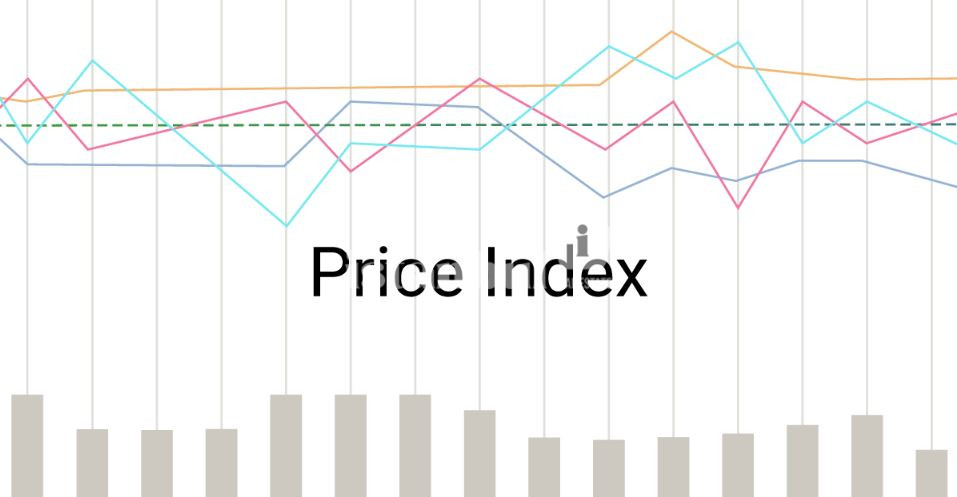Read About Istanbul Real Estate Price Index And Trends
Located in one of the most important cities in the world, with diversified economies and cultural significance, the Istanbul real estate market is an apple of discord in the world that draws both foreign investors and local buyers. Price movements in this city serve as an indicator of the general market conditions due to the interplay between demand and supply, as well as the overall economic condition that is beyond one’s immediate control. The trends both in the past and currently, driving factors, and prospects of the Istanbul real estate price index are discussed in this article.

1. Introduction to Istanbul Real Estate Price Index
The Istanbul Real Estate Price Index will, therefore, work as the perfect tool for measuring variation in price in the property market of Istanbul. This index would track the price change across different districts and property types to come up with an aggregate performance of the market over time. Major determinants of this index would be population growth in the city, urban development projects, economic trends, and a change in the preference of buyers.
The Istanbul index may thus be a good indicator of the market dynamics not only in Istanbul, which often differs in trends from the rest of Turkey as its economic and cultural center, but also a wider and broader indication of economic conditions in general throughout Turkey.
 2. Historical Trends in the Istanbul Real Estate Price Index
2. Historical Trends in the Istanbul Real Estate Price Index
Over the decade, Istanbul’s real estate market has developed and shifted. Some of the most important trends in the historical price index include:
- Early 2010s Boom: During the early 2010s, there was a boom in prices for real estate in Istanbul due to high demand. The majority of investors came from the Middle East, boosting the prices. Some major infrastructure projects involving the building of Istanbul Airport and Canal Istanbul factored into confident investor activity with rising prices.
- 2018 Economic Slowdown: In the case of Turkey’s economy in 2018, the prevailing situation of high inflation and devaluation of currency curtailed the purchasing power of local buyers. In such a period of depressed demand, more so in its luxury segment, the price index of real estate took a fall.
- Pandemic and Post-Pandemic Growth: The COVID-19 pandemic initially depressed real estate transactions in both lockdowns and economic uncertainties. The real estate market of Istanbul surged in mid-2021 due to record-low interest rates and renewed interest in property investment as a stable asset. This surge has brought about a great spurt of the price index, with household and foreign buyers jumping into the market.
3. Factors Influencing Istanbul’s Real Estate Price Index
 It is true that the currency exchange rate, inflation, and the interest rate often contribute to real estate. Property prices may be super attractive for foreigners because the Turkish lira is always fluctuating. Inflation and interest rate directly affect the locals through their buying power and especially the urge to invest in property.
It is true that the currency exchange rate, inflation, and the interest rate often contribute to real estate. Property prices may be super attractive for foreigners because the Turkish lira is always fluctuating. Inflation and interest rate directly affect the locals through their buying power and especially the urge to invest in property.
- Urban Development Projects: Istanbul has huge infrastructure investments like the undersea rail tunnel of Marmaray, new highways, and the new airport of Istanbul. Such projects many times send the price flying upwards in the surrounding districts in the shortest period of time when better connectivity attracts both the buyers and the developers with much-improved facilities.
- Foreign Demand: Istanbul has become a prime tourist destination and a business center, thereby also becoming very appealing to foreign investors. The citizenship-through-investment program announced by the Turkish government fanned foreign interest in Istanbul’s real estate further, driving up demand-and prices-in certain areas.
- Supply Constraints: Fast population growth in Istanbul creates high demand, particularly for housing within the city’s center. The scarcity of land to develop, in addition to the high costs of construction, creates a lack of balance between supply and demand that naturally inflates prices.
- Socio-political Stability: The real estate markets can only be stable if the political and social environment is stable. Any election-related or policy-based uncertainty might influence buyers and alter the price index.
4. Regional Variations in the Price Index

Istanbul is a huge city, and prices of real estate vary enormously among each district. The price index will explain those regional differences, as follows:
- Central Districts: Beyoğlu, Şişli, Beşiktaş traditionally commanded the highest price due to the central location and closeness to business hubs. These places manage to have steady demand despite high prices as professionals and expats head in their direction.
- Suburban Districts: Speaking in general, district prices like those of Başakşehir and Beylikdüzü are a bit more reasonable compared to those in the center. The infrastructure has been improving lately; therefore, demand has increased thanks to newly established residential projects aimed at families and young professionals.
- Seafront and Bosphorus-Side Apartments: The districts framing the Bosphorus, like Kadıköy, Üsküdar, and Sarıyer, are among the most popular, especially in the luxury apartment category. Reasons such as scenic views and historic charm make these districts highly sought after with a high appreciation in price.
5. Future Outlook of the Istanbul Real Estate Price Index

The future of Istanbul’s real estate market, and by extension its price index, will depend on several factors:
- Sustained Foreign Interest: The continuation of Turkey’s citizenship-by-investment program is likely to keep foreign interest high. With many foreign investors favoring Istanbul, this demand is expected to contribute to gradual price increases in certain segments of the market.
- Inflation and Interest Rates: Turkey’s ongoing struggle with inflation and fluctuating interest rates may impact local buying power. If inflation continues to rise, property prices might increase, yet local buyers’ purchasing power could diminish, leading to potential imbalances in demand.
- Technological and Environmental Shifts: As more people adopt remote work, there may be a shift in preference towards suburban or coastal areas, away from traditionally crowded central districts. Additionally, environmentally sustainable projects are increasingly popular and may attract buyers looking for green-certified properties.
- Government Policies: Turkish government policies related to real estate taxation, foreign investment regulations, and urban planning will play a role in shaping the future price index. Policies that incentivize sustainable development and support affordable housing can help stabilize the market.
